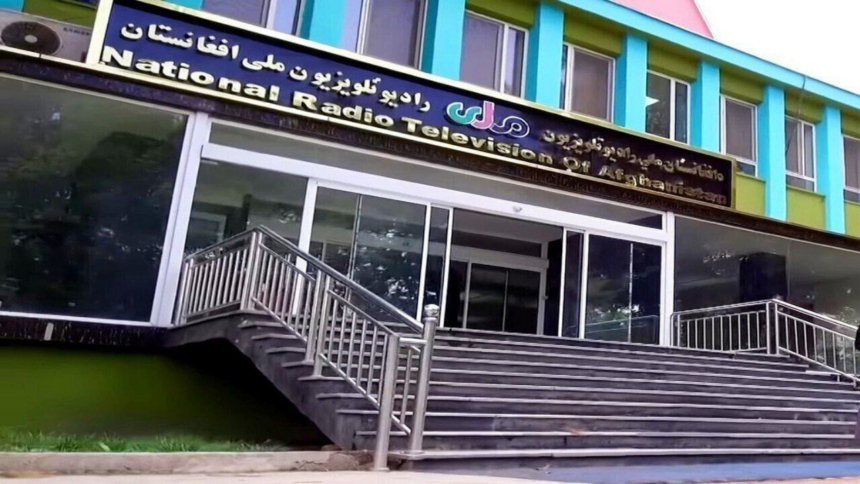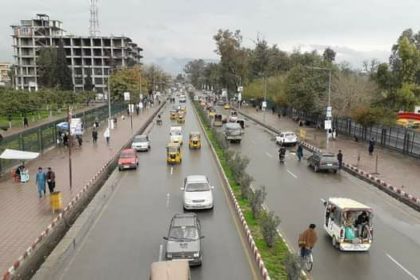RASC News Agency: In yet another stark illustration of the Taliban’s campaign to impose a mono-ethnic administrative order across Afghanistan’s state institutions, dozens of non-Pashtun employees at Afghanistan’s National Television have been arbitrarily dismissed under the pretext of “structural downsizing.” The mass expulsion, which reportedly began on Monday, May 12, represents a deeply troubling continuation of the group’s policy of ethno-political cleansing within the public sector. According to sources with direct knowledge of the incident, the overwhelming majority of those dismissed are ethnic Tajiks and other non-Pashtun minorities. Preliminary estimates suggest that approximately 90 percent of the terminated employees belong to non-Pashtun ethnic groups, exposing the ethnocentric logic behind what the Taliban portray as an administrative decision.
Although the Taliban have officially claimed that the dismissals form part of a nationwide initiative to reduce government staffing by 20%, many analysts contend that the layoffs are politically and ethnically motivated. The group’s justification citing budget cuts and reduced foreign aid has been widely dismissed as a smokescreen for a calculated effort to consolidate control over public narratives and institutions by excluding Afghanistan’s ethnic mosaic. Since retaking power in August 2021, the Taliban have engaged in a systematic campaign to marginalize and purge non-Pashtuns from key positions across ministries, security forces, and educational institutions. The recent targeting of National Television a vital platform for cultural expression and national cohesion marks a dangerous escalation of this agenda, as the regime turns its focus to the media and cultural spheres, which have historically served as arenas of pluralism and representation.
A former National Television journalist who spoke to RASC on condition of anonymity said, “This is not administrative reform. It is ethnic cleansing in slow motion executed through paperwork and silence. The Taliban are rewriting the nation’s institutions to reflect only one ethnicity, one language, and one ideology.” Multiple former employees have reported that the purge disproportionately targeted individuals who had worked during the Republic era and who possessed higher education qualifications. Some of them had dedicated decades to the development of Afghanistani media. Now, they are left unemployed, with no social support in a collapsed economy. The Taliban, critics say, are replacing them with individuals loyal to the regime, often with no media training and drawn directly from religious seminaries.
The consequences of such actions extend far beyond employment. By stripping the media of ethnic and intellectual diversity, the Taliban are eroding the very foundations of press freedom, national unity, and cultural pluralism. Experts warn that these policies not only silence marginalized voices but also aim to weaponize media as a tool of ideological indoctrination. Human rights organizations have decried the move as a blatant violation of fundamental rights. “We are witnessing a deliberate and well-orchestrated campaign to erase non-Pashtun representation from the public domain,” said a representative from a regional media watchdog. “This is not downsizing it is disenfranchisement.”
The impact on public perception has been profound. Many Tajik, Hazara, and Uzbek citizens now view state media as a partisan institution no longer representative of Afghanistan’s cultural and ethnic plurality. Activists argue that this deepening disenfranchisement risks stoking ethnic tensions, undermining social cohesion, and entrenching division in an already fragmented nation. International response to such ethnic purges remains tepid. While the global community continues to express concern over Taliban restrictions on women and press freedom, the issue of ethnic discrimination and systemic exclusion has largely remained under-addressed. Advocates are urging the United Nations and human rights bodies to expand their mandates and demand accountability for ethnic-based purges in state institutions.
“The Taliban’s ethnic project is clear, and the silence of the world is complicity,” warned a former government official in exile. “Afghanistan is not a Pashtun emirate. It is a multiethnic nation, and silencing its majority for the sake of an ideological few is a crime against its very identity.” As the Taliban continue to reshape the state in their own image, Afghanistan’s non-Pashtun communities are once again being pushed to the margins of their own country excluded from power, erased from public media, and silenced under the weight of an oppressive regime that refuses to recognize the diversity it claims to govern.






